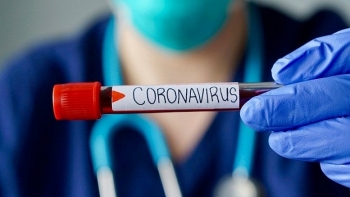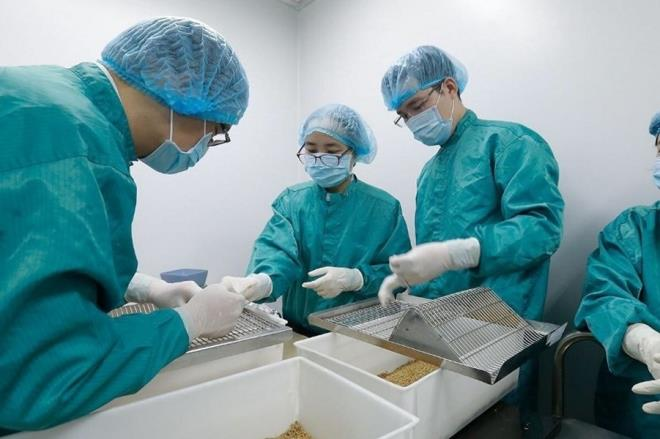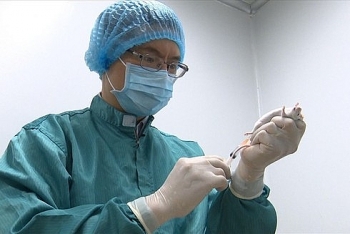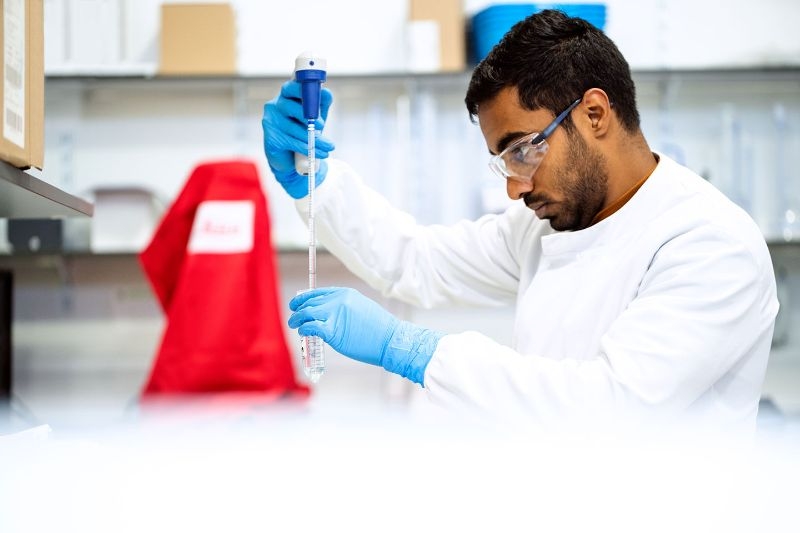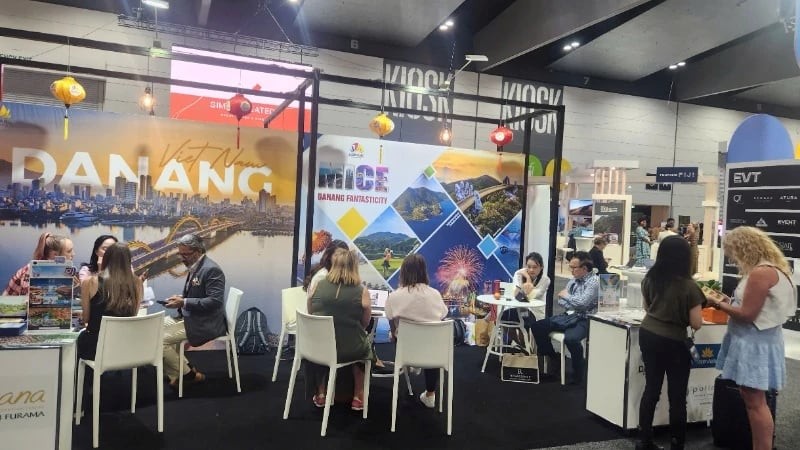Australia to commit $80m to guarantee access to COVID vaccine for all
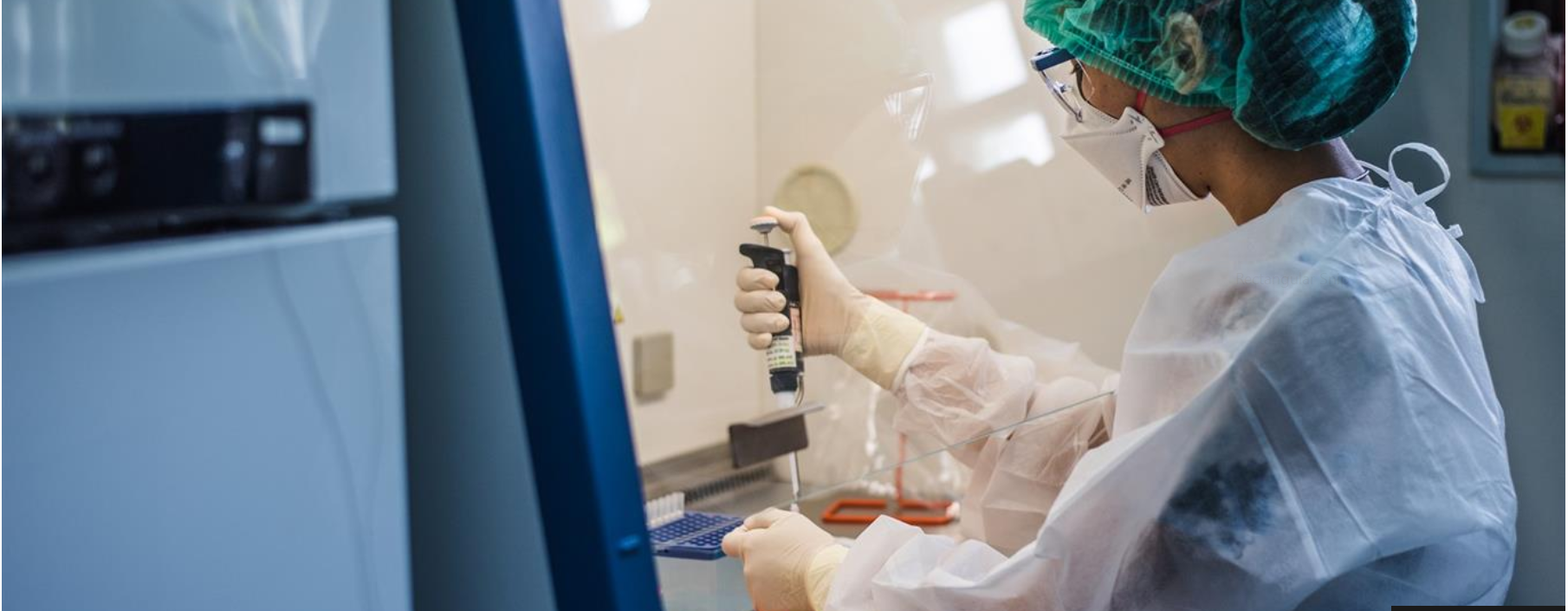 |
| 172 countries and multiple candidate vaccines engaged in COVID-19 vaccine Global Access Facility. Photo: WHO/Ploy Phutpheng |
The Australian Government has announced on August 26 that it will contribute $80m to a global initiative that will guarantee fair access to safe and effective COVID vaccines for developing countries to ensure that the world’s poorest don’t miss out, a media report released by Minister for Foreign Affairs of Australia.
The COVAX AMC will secure and distribute COVID-19 vaccines for all countries, not just those that can afford to purchase or manufacture vaccines themselves.
COVAX is led by Gavi, the Vaccine Alliance, the Coalition for Epidemic Preparedness Innovations (CEPI) and the World Health Organisation (WHO). Under the initiative, doses will be distributed equitably as they become available between the higher-income, self-financing countries that will pay for their doses, and developing countries that would otherwise be unable to afford to pay for the vaccine. So far, 172 countries have expressed their interest to take part in the initiative.
“Equal access to a COVID-19 vaccine is the key to beating the virus and paving the way for recovery from the pandemic,” said Stefan Löfven, Prime Minister of Sweden. “This cannot be a race with a few winners, and the COVAX Facility is an important part of the solution – making sure all countries can benefit from access to the world’s largest portfolio of candidates and fair and equitable distribution of vaccine doses.”
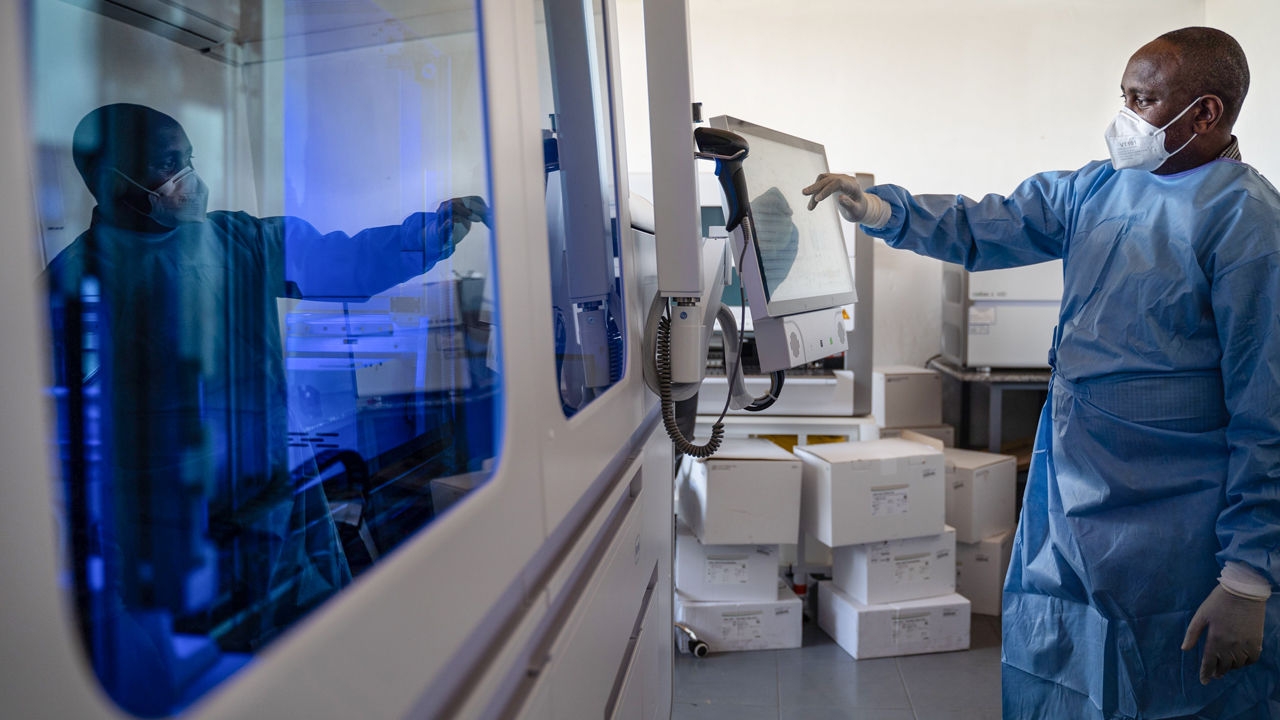 |
| A lab technician works on COVID-19 tests in Kigali, Rwanda. Health care workers should be first in line for pandemic vaccines, global health experts say. Photo: SIMON WOHLFAHRT/AFP/GETTY IMAGES |
Effective COVID-19 vaccines are urgently needed to protect populations and restart economies. This commitment will ensure that cost is not a barrier to accessing COVID-19 vaccines for poorer countries, including for some of Australia’s regional neighbours. Without worldwide vaccine uptake, the pandemic and its impacts on health, the economy, security and the movement of people and goods will continue unabated.
Pacific Friends of Global Health Chair Professor Brendan Crabb AC said: “Vaccines are not magic force shields for individuals, none of us are safe until everyone’s safe. In that way, vaccinating all those in our region is essential, not just to protect those in need who deserve rich country support, but it is also in our own enlightened self-interest”.
Professor Crabb said, “It is important also to note that in low income settings, COVID-19 is likely to cause far more suffering from other diseases than from COVID-19 itself. Health systems just can’t cope. In that way, we desperately hope that new and additional funds will be committed to the aid budget to fund this and other COVID commitments for the region because we know that deaths from malaria, TB and HIV have already been increasing due to the diversion of testing and workforce attention to COVID in countries such as PNG.”
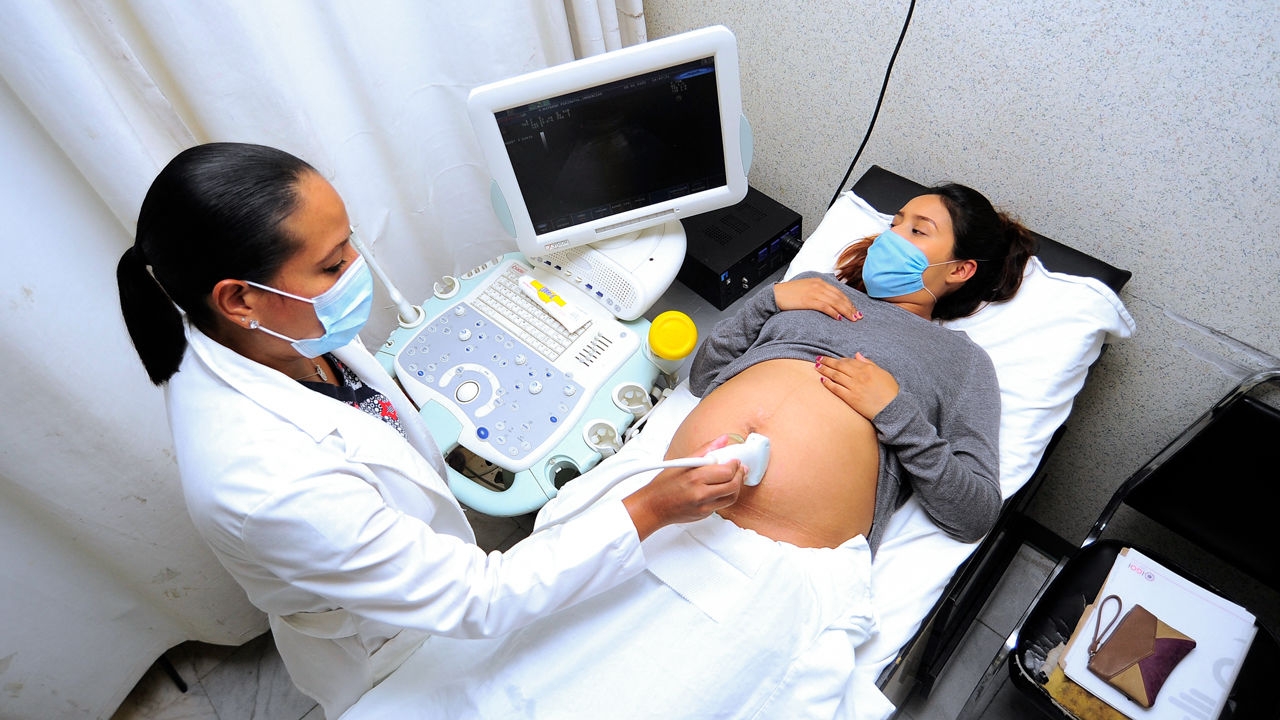 |
| Vulnerable people, including poor people, the elderly and children should be on the first line to receive a new coronavirus vaccine. Photo: RICARDO CASTELAN CRUZ/EYEPIX/ABACA/SIPA USA |
The aim of the COVAX Facility is to fairly distribute 2 billion doses of safe, effective vaccines to all participating countries by the end of 2021. Under the initiative, participating governments are guaranteed access to cover priority populations, such as health care workers and vulnerable groups. A portion of doses will also be reserved for emergency and humanitarian use.
“COVID-19 is an unprecedented global health challenge that can only be met with unprecedented cooperation between governments, researchers, manufacturers and multilateral partners,” said Dr Tedros Adhanom Ghebreyesus, Director-General of WHO. “By pooling resources and acting in solidarity through the ACT Accelerator and the COVAX Facility, we can ensure that once a vaccine is available for COVID-19, it’s available equitably to all countries.”
According to the Australian Government, international investment in vaccine manufacturing and procurement is stronger when nations work together. In making this investment, Australia joins key donors such as the United Kingdom, Canada, Italy and Norway.
Pacific countries eligible for COVAX AMC support include Papua New Guinea, Solomon Islands, Vanuatu, Fiji, Samoa, Tonga, Tuvalu and Kiribati. Eligible countries from Southeast Asia are Indonesia, Timor-Leste, Cambodia, Laos, Myanmar, The Philippines and Vietnam.
| According to WHO, the goal of COVAX is by the end of 2021 to deliver two billion doses of safe, effective vaccines that have passed regulatory approval and/or WHO prequalification. These vaccines will be offered equally to all participating countries, proportional to their populations, initially prioritising healthcare workers then expanding to cover vulnerable groups, such as the elderly and those with pre-existing conditions. Further doses will then be made available based on country need, vulnerability and COVID-19 threat. The COVAX Facility will also maintain a buffer of doses for emergency and humanitarian use, including dealing with severe outbreaks before they spiral out of control.
|
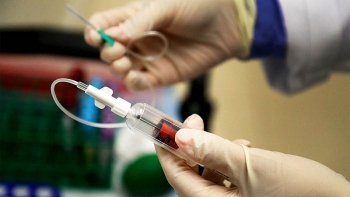 | Sputnik V's third stage of trials can be called mass vaccination, said Russian developers The trials will be carried out in the Moscow Region and some 20,000 - 30,000 people will get the vaccine. |
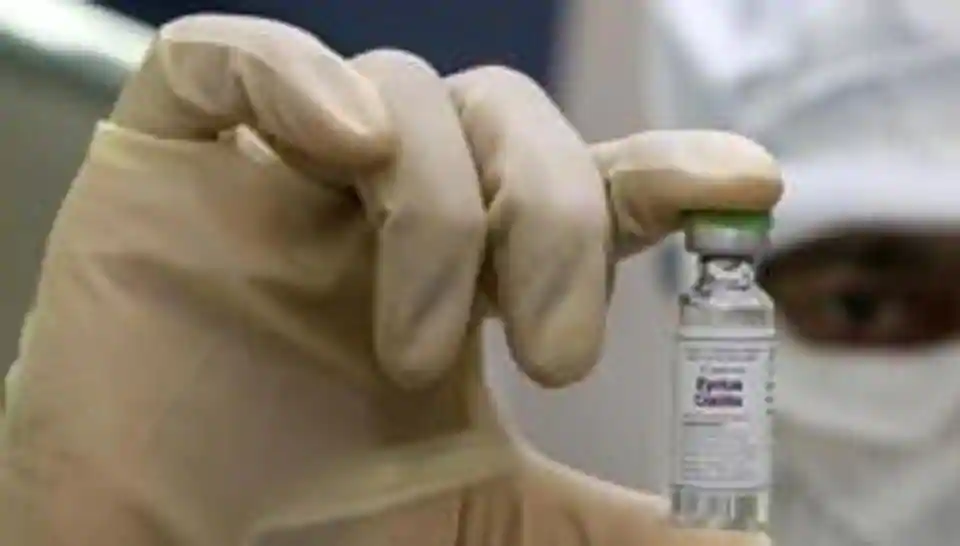 | Covid-19 vaccine update: Controversial Russia’s ‘Sputnik V’ and its availability Russian business conglomerate Sistema has said it expects to put the vaccine, developed by Moscow’s Gamaleya Institute, into mass production by the end of the ... |
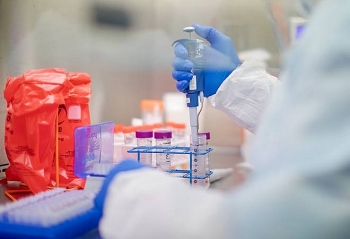 | Russia’s COVID-19 vaccine pre-ordered by 20 nations for a billion doses Several Latin American, Middle Eastern and Asian countries have expressed an interest in purchasing the Russian vaccine named Sputnik, while several contracts have been finalised, ... |
Recommended
 World
World
Pakistan NCRC report explores emerging child rights issues
 World
World
"India has right to defend herself against terror," says German Foreign Minister, endorses Op Sindoor
 World
World
‘We stand with India’: Japan, UAE back New Delhi over its global outreach against terror
 World
World
'Action Was Entirely Justifiable': Former US NSA John Bolton Backs India's Right After Pahalgam Attack
 World
World
US, China Conclude Trade Talks with Positive Outcome
 World
World
Nifty, Sensex jumped more than 2% in opening as India-Pakistan tensions ease
 World
World
Easing of US-China Tariffs: Markets React Positively, Experts Remain Cautious
 World
World

